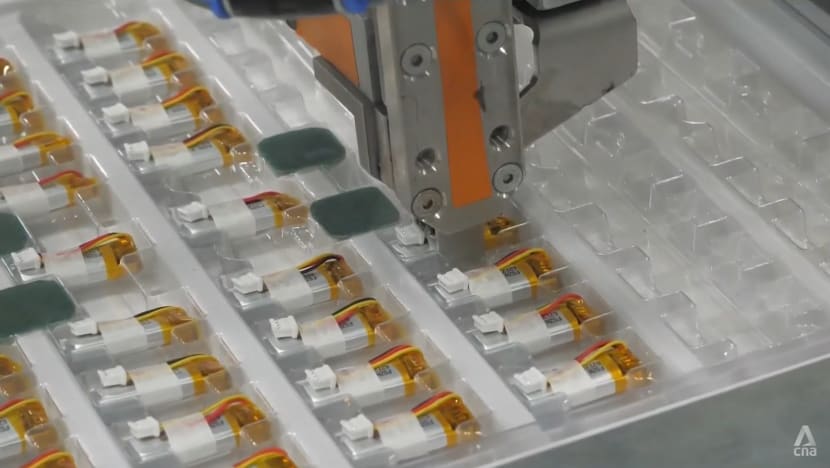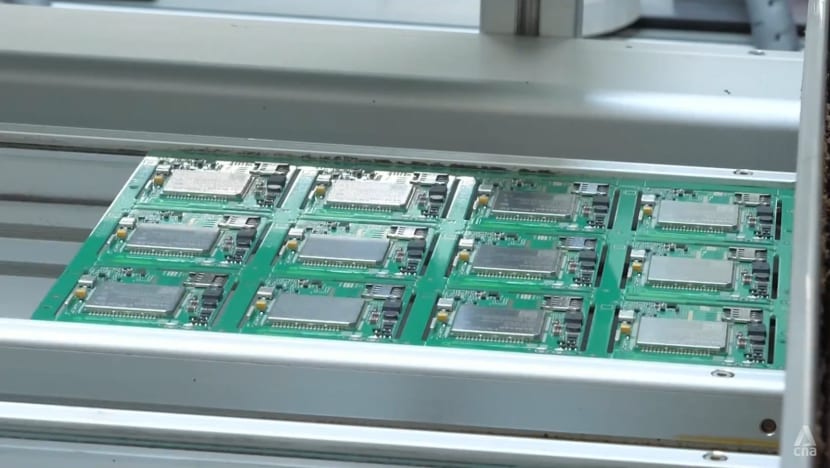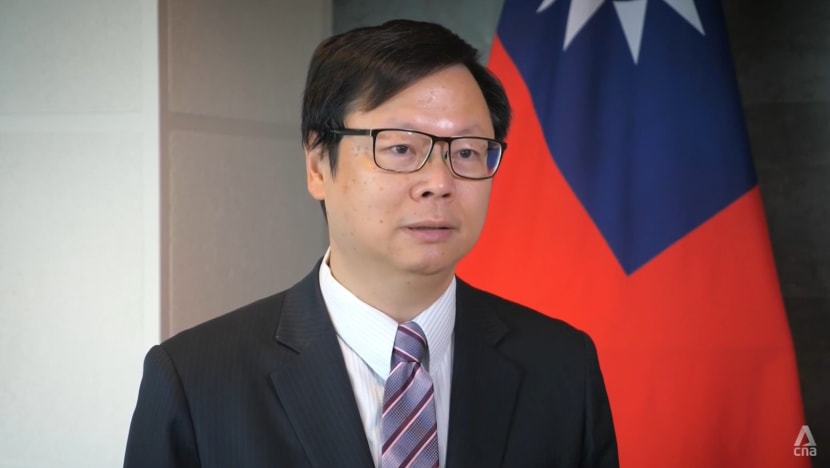Lithuania pursues semiconductor partnership with Taiwan as Europe seeks share of global market
Tech firm Teltonika aims to achieve domestic production capabilities by 2027 by working with Taiwan's Industrial Technology Research Institute.

Semiconductors, or microchips, are components found in electronic devices such as phones and drones.
VILNIUS: A Lithuanian electronics company is hoping to become the country’s first producer of semiconductors, thanks to a new partnership with Taiwan.
Tech firm Teltonika aims to achieve domestic production capabilities by 2027 by working with Taiwan's Industrial Technology Research Institute.
The chipmaking cooperation comes amid deepening tensions between the European country and China. The two countries downgraded their diplomatic relations in 2021, and Vilnius has also lodged a complaint over China’s trade practices.
Lithuanian Economy and Innovation Minister Ausrine Armonaite had first outlined ambitions for the European Union member to become a major global player in the sector earlier this year.
"This partnership with Taiwan will help Lithuania to move forward rapidly, match the world's strongest players and realise its ambitious goals," she had said in January this year.
Semiconductors, or microchips, are components found in electronic devices such as phones and drones.
The most sophisticated chips come from Taiwan, whose expertise is sought by many countries.
A EUROPEAN GOAL
Mr Ernestas Zdaniauskis, vice-president of innovation and business development at Teltonika, told CNA: “Europe has a strategic goal to have 20 per cent of global semiconductor share in the market.”

Although there is a focus on semiconductor production and fabrication, there is also a need to address other areas such as design services or packaging and testing, in order to hit the target, he said.
“We plan to have a packaging and testing facility here in Lithuania, so our facilities (and) our services will help Europe to reach this goal,” said Mr Zdaniauskis.
That ambition was what helped the electronics firm form a partnership with the Taiwanese research institute.
Under the agreement, Taiwan will provide licences for semiconductor manufacturing, as well as training for Lithuanian workers and consulting on the project.
The semiconductors are imported from Asia at the moment, but the vision is for more of such components to be designed, manufactured and packaged in the Baltic state, providing more control over the end product and more security in the supply chain.
TENSIONS WITH BEIJING
The developments come amid not just frosty relations between Lithuania and China, but heightened tensions across the strait between Beijing and Taipei.

On Wednesday (Sep 13), Taiwan's defence ministry said it spotted 28 Chinese air force planes in its air defence zone, part of what Taipei calls regular harassment by Beijing.
China has been increasing its military operations around Taiwan in the past few years, in response to what it considers "collusion" between Taiwan and the US.
It is against such a backdrop that Taiwan and Lithuania are forging closer ties, with the Baltic state permitting the opening of a de-facto Taiwanese embassy in Vilnius in 2021.

“I think each party has its competitive advantages, for example, Taiwan is very good in semiconductors, Lithuania is advanced in electronic manufacturing as well as laser and biotech,” Mr Eric Huang, head of the Taiwanese Representative Office in Lithuania, told CNA.
“So we complement each other and this forms a natural partnership between Lithuania and Taiwan.”
For Taiwan, the relationship provides an inroad into European capitals, while for Lithuania it is a chance to get a slice of the global semiconductor market.















